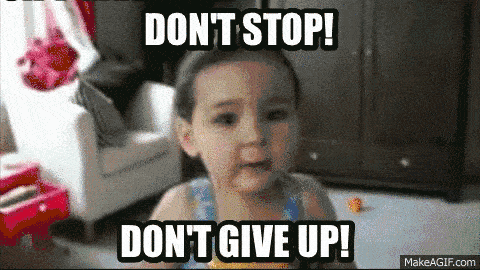Giving up on child custody would be unthinkable for most parents, especially in a high-conflict case where each parent wants to have their way. The idea of giving up especially in the first stages of a child custody battle may not cross the mind.
However, some circumstances may dictate a parent to want to give up, and thus the question, when to give up?
Some parents who are reasonable enough and understand the best interests of the child or children may give up at early stages, or just after the other parent files for custody with the court. This normally happens when parents are not on good speaking terms with each other.
Parents who are knowledgeable and understand the needs of the child would think twice about the child custody battle, and this may cause them to give up to save on resources. They understand that the battle can go for years and can be expensive hence may even deplete the resources that otherwise would have been used to care for the child.

It is also important to understand that giving up does not mean neglecting the child or his or her needs. It means letting the custody battle die to save on time and resources, and to give way to the needs and best interests of the child to prevail.
When To Give Up On Child Custody?
A reasonable parent may find many reasons to give up on child custody. While it can be a frustrating experience to imagine losing the kids and never having them again, if it is in the best interests of the child or children, then a parent should consider it as an option.
Inability To Care For The Child Due To Limited Resources
A parent may consider giving up on child custody due to the constraint in financial resources. Since it is the responsibility of the parent to provide and take care of all the needs and wants of the child, a parent who is not well-endowed with resources may consider relinquishing custody so that the other parent who is financially able can take care of the child.
A court battle is also expensive and resource-consuming. Instead of spending all the money in a court process, a reasonable parent may wish to relinquish custody and use the available resources to support the development of the child.
Mental Health Issues Or Physical Illness
If you have mental health issues or a physical illness, it would be difficult to manage the affairs of the child. A parent with such issues may concentrate more on their health than on the needs of the child. Therefore, to promote the best interests of the child, it would seem prudent to give up custody to the other parent who is physically and mentally fit.
Best Interests Of The Child
If the other parent is good enough to care for the child and to cater for his or her needs, to provide a comfortable living environment, and to nurture them in a good way, then it is wise for the other parent to step down and let that able parent be the caregiver for the sake of the child.
This may also be the case if the child’s continuity of his or her routine would be disturbed by having the change of the living environment.
A reasonable parent may not want to have the kids’ routine activities disturbed.
To promote the best interests of the child, you need to ensure that he or she keeps up with the routine and if you are in a constant move due to job demands, then it would be advisable to have the child stay where he or she will continue with the routine without being disturbed every other time you are in need to relocate to a new place. That means relinquishing custody so that the stable parent can take care while you can enjoy the visitation rights.

What Happens When A Parent Gives Up On Child Custody?
Though it may serve the best interests of the child, a parent who gives up on custody may suffer some consequences of choice. These may be positive or negative depending on the nature of the terms set by the court. These include:
No Input In Decision Making
A parent who takes over the custody of the child is concerned with the physical, social, and emotional well-being of the child. That means, giving up on custody means losing the input to make important decisions that would affect the life of the child. These include decisions such as education, healthcare, childcare, religion, and other major decisions.
Enjoy Visitation Rights
Since the other parent will take physical custody of the child, the other parent may be granted visitation rights. This also depends on the nature of the battle. In high-conflict cases, a parent who relinquishes custody may do it in bad faith and that means given visitation rights, that may come with strict restrictions or be supervised.
A parent who relinquishes custody in good faith and to promote the best interests of the child, as in a less-conflict battle, and if they are on good terms with the ex-spouse, may enjoy better time-sharing with the other parent through visitation.
Child Support Payments

Giving up on custody does not guarantee you wont take part in the affairs of the child. It is the responsibility of both parents to take care of and provide for all the needs of the child. Therefore, giving up means you will likely continue paying child support.
Conclusion
As we have seen, you may give up on a child custody battle if that can work to promote the best interests of the child. It also means that you will save on resources that you would have spent in the court battle, but may bring about consequences that are either positive or negative on your side.
Therefore, there is no need to hold on to a court battle that is draining if you think that giving up will enhance the child’s best interests. When this is the way to go, you may just want to negotiate for better time-sharing with the other parent.





